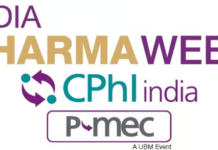New Delhi, December 10, 2021: The World Health Organization (WHO) has launched the World Malaria Report 2021, highlighting the havoc malaria continues to wreck on the world’s poorest and most vulnerable. An estimated 14 million more cases and 69,000 more deaths were caused by malaria during 2020 compared to 2019. India was the only high burden country to record progress by sustaining a reduction in malaria burden between 2019 and 2020. However, the rate of decline was slower than before the pandemic, the WHO report stated, with the country still sharing over 80% of the malaria burden of South-East Asia.
“Even before the Covid-19 pandemic struck, global gains against malaria had leveled off,” said Dr. Tedros Adhanom Ghebreyesus, WHO Director-General, in a statement. The WHO report also highlighted sizable gaps in malaria funding, as the demand to sustain progress increased last year to US$ 6.8 billion with only a tiny increase in malaria funding. In the South-East Asia region, the malaria funding per person at risk in India has been lower than the neighboring countries, stated the report.
Alongside plateauing investments, a sharp drop in malaria testing and gaps in mosquito control measures contributed to the thwarted progress in the high burden countries. Of the 31 countries that had planned insecticide-treated mosquito net (ITN) campaigns in 2020, only 18 completed their campaigns by the end of that year. Ravaged by the pandemic, India only managed to fulfill 50% of its planned distribution of long lasting insecticidal nets, and had also recorded a reduction in other measures like the indoor residual spraying during 2020.
“The figures and trends are deeply concerning as the most malaria affected countries witnessed a reversal of the previous gains last year.” said, Dr. Kaushik Sarkar, Director, Institute for Malaria and Climate Solutions and Director In-charge, Malaria No More India. “India, a trendsetter in the world’s progress against malaria in recent years, albeit sustained the reduction of malaria cases. But the plateauing progress with the pandemic-induced disruption of services and supply chain reflects the urgency of utilizing India’s robust COVID19 surveillance infrastructure and capacities to combat febrile illnesses like malaria. At the same time, India must focus on bridging the gap between the demand and supplies of vector control tools. With greater self-reliance and frugal innovations, it’s time the country shifts gears in the fight against malaria to make the next five years the last five years of suffering from malaria,” added Dr Sarkar, highlighting the urgent need of developing self-reliance and pandemic-resilience in India, as the country is closing towards the end of its current National Strategic Plan for Malaria Elimination. India’s Ayushman Bharat Digital Health Mission and the flagship “Make-in-India” initiative, at this outset, provide a robust system to sustain and elevate the fight against malaria, a major threat to the country’s health security.
Despite the strong impact of the pandemic, heroic efforts by countries, partners and community health workers using innovative strategies, strong political will and mobilizing new funding were all crucial to avoiding the worst-case scenario. Besides, India’s sustained progress against malaria also demonstrated how strong governance and robust pandemic response could build enough resilience to prevent the upsurge of diseases like malaria. Despite the challenges, countries and partners ensured that 72% of life-saving insecticide-treated net distribution programmes went ahead in 2020. Over 33 million children were also reached with seasonal malaria chemoprevention, more than ever before.
To further the humanitarian cause of achieving malaria elimination, there is an imminent need to integrate strategic innovations such as climate-based forecasting, data-driven decision making, vector control strategies, advanced surveillance tools etc. and develop digital mechanisms that use real-time data to ensure a more robust malaria elimination fight. This critical investment will not only help eradicate malaria but will help strengthen India’s health security agenda. Realizing this need, Malaria No More India calls organizations and stakeholders to work together to advance innovations to contribute to India’s malaria elimination journey.
Corporate Comm India (CCI Newswire)























